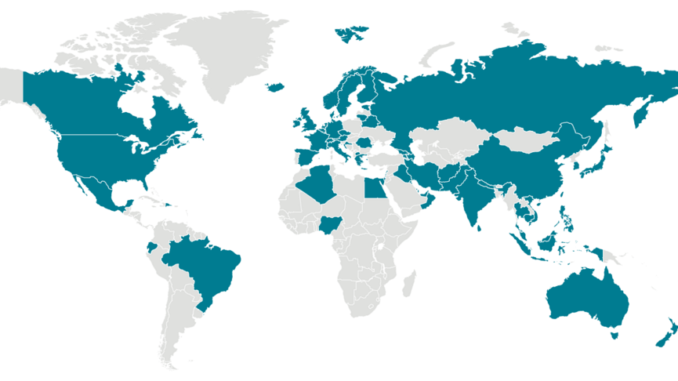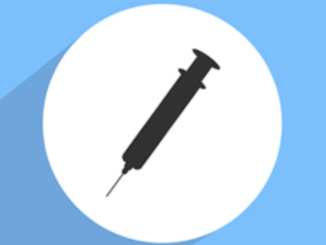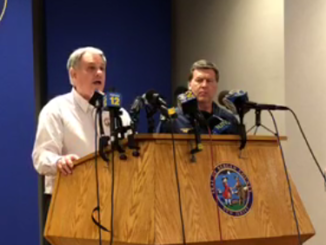
Editor’s note: This story was updated on March 4 at 4 p.m.
BERGEN COUNTY, N.J.—With the coronavirus having been found throughout the United States after spreading from its original outbreak in China to a 66 nations on every continent, except Antarctica, officials throughout New Jersey advise the public that preparations continue to contain its spread if and when it appears.
Bergen County Executive James Tedesco detailed local preparations in a March 3 press conference, and in nearby New York City and Westchester County, N.Y., health officials worked to contain community spread of the virus as cases there were confirmed.
On March 4, there were no confirmed cases in New Jersey. That same day, the Centers for Disease Control said there were 80 cases in the United States, resulting in nine deaths in 13 states.
Recent Centers for Disease Control guidelines expanded who should be tested for the virus, including people with recent travel to Japan, Italy, Iran and South Korea. The U.S. Department of State has issued updates to travel advisories concerning the nations currently suffering outbreaks of coronavirus.
However, the CDC noted that most people in the United States face low risk from the coronavirus unless they should be exposed to an infected individual.
“While there is still much to learn about the unfolding situations in California, Oregon and Washington, preliminary information raises the level of concern about the immediate threat for (coronavirus) COVID-19 for certain communities in the United States. Most people in the United States will have little immediate risk of exposure to this virus, but some people will be at increased risk depending on their exposures,” said the CDC in a news release Feb. 29.
“The greatest risk is to those who have been in close contact with people with COVID-19. People with suspected or confirmed exposure should reach out to their state or local public health department,” the CDC said.
“CDC is sending a team of experts to support the investigation in Washington,” said Dr. Nancy Messonnier, a CDC spokesperson.
“We recognize that this is a difficult time; we are facing a historic public health challenge. We will continue to respond to COVID-19 in an aggressive way to contain and blunt the threat of this virus. While we still hope for the best, we continue to prepare for this virus to become widespread in the United States,” said Messonnier.
Financial markets tumbled amid fears of a pandemic and the Federal Reserve Bank reduced interest rates to between 1 to 1.25 percent, with The New York Times reporting Fed Chair Jerome H. Powell said “The virus and the measures that are being taken to contain it will surely weigh on economic activity, both here and abroad, for some time.”
NJ gets prepared
On March 1, U.S. Rep. Josh Gottheimer (NJ-5) gathered in Hackensack with area health and hospital officials to detail Coronavirus coordination, response and preparedness region wide.
“While it is important to address the Coronavirus issue on a federal level, the impact and solutions come from everyone here on the local level,” said Gottheimer. “We need to make sure our hospitals and health facilities have everything they need ranging from personal protective equipment for employees, comprehensive quarantine plans, and the necessary medicine and materials to treat patients afflicted with this virus.”
In New Jersey, Gov. Phil Murphy launched a comprehensive statewide effort in late January, including a statewide 24/7 hotline at (800) 222-1222 for the public to ask questions about the coronavirus.
Virus hotline, website
The hotline, operated by the state Poison Information and Education System, is staffed by trained health care professionals. In addition, New Jersey has created a state web page that includes information on coronavirus, and offers travel advisories, virus updates and guidance for health care providers, local health departments, infection prevention and public health partners.
The state health department offers specific guidance on evaluating reports of patients exhibiting coronavirus symptoms to help determine who should be tested for the virus.
According to Johns Hopkins University Health press release, coronaviruses are a type of virus.
Related story:
Likely animal source
“This COVID-19 virus probably originally emerged from an animal source but now seems to be spreading from person to person. COVID-19 has been detected in people throughout China and 24 other countries, including the United States,” said an online release.
‘A lot of unknowns’
The virus has a 14-day incubation period after exposure, said Johns Hopkins.
“Recent information indicates COVID-19 may be passed from person to person. There are still a lot of unknowns, including how contagious it might be,” said the Johns Hopkins release.
On Jan. 30 the World Health Organization declared the COVID-19 outbreak a public health emergency.
Coronavirus symptoms include cough, fever and shortness of breath, and in rare cases it can lead to severe respiratory problems, kidney failure and death. Health officials advise anyone who has traveled outside the country in the last 14 days, particularly to areas affected by coronavirus including China, Iran, Italy, Japan and South Korea, to inform a doctor or health care provider before going to the doctor’s office, urgent care office or emergency room.
Also, anyone who suspects they’ve been in close contact with an infected person (within six feet) for an extended period, should give advance notice to a health care provider or facility before arriving, warn health officials.
Health care professionals can recommend next steps in lieu of arriving at a crowded waiting room or emergency clinic.
“Currently, the actual number of COVID-19 infections here in the United States is relatively low. There are some precautions we can all take to keep ourselves healthy,” said Jerry Zuckerman, M.D., vice president of Infection Prevention & Control at Hackensack Meridian Health.
Zuckerman said “current understanding about how the virus that causes the COVID-19 infection spreads is largely based on what is known about similar coronaviruses…this virus is very new so it is still unclear just how easily it spreads from person to person,” added Zuckerman.
How virus spreads
Suspected routes of transmission likely with COVID-19 are close contact (within 6 feet); and via respiratory droplets produced when an infected person coughs or sneezes; generally infection occurs if droplets land in the mouths or noses of people nearby or are inhaled into the lungs, say health officials.
Also, health officials suspect contact with infected surfaces or objects, and then touching a person’s mouth, nose or eyes can spread the virus, although, they say, this is not as common as infection due to a cough or sneeze.
Schools put on notice
Meanwhile, school officials statewide were receiving mixed messages on how to deal with a potential case of coronavirus.
‘Tele-school’ suggested While the state Department of Health was advising districts to dismiss school for 14 days if an infected student or staff attended school before being diagnosed – and then took down that online guidance – other agencies said more guidance would be forthcoming on how to implement so-called “tele-schooling” plans should schools need to be closed.
State Department of Education spokesman Mike Yaple said the department would soon provide updated guidance to districts on providing home instruction via virtual classrooms. Districts need to have students complete 180 days in a school year.
In late February, the CDC’s Messonnier, said reports of the virus spread to South Korea, Iran and Italy “raised our level of concern” that further virus spread will occur in the U.S.
“The CDC is recommending that people begin to plan for such an event by taking steps such as asking school systems what their strategy will be to mitigate the spread,” Messonnier said.
For example, schools might consider dividing students into smaller groups or even using internet-based teleschooling, she said. On a larger scale, communities and cities may need to change or postpone mass gatherings, Messonnier suggested.
Northern Valley Regional District Superintendent James Santana told a media outlet that the district has much experience with virtual school days, and has students equipped with MacBook laptops and uses Google classroom.
Efforts to reach Santana and Pascack Valley Regional High School District Superintendent P. Erik Gundersen for comment were not returned by press time.
No vaccine yet
Currently, there is no vaccine available for the coronavirus. However, researchers at the National Institutes of Health reported they are in the early stages of developing one.
U.S. health experts have estimated a 12-18 month timeline before any vaccine is likely available, with phase I clinical trials due to start within months, said NIH Director Dr. Anthony Fauci at a Jan. 28 press briefing.
On Feb. 25, U.S. officials announced that the first clinical trial in the country to evaluate a treatment for COVID-19 was underway, according to the NIH. The trial will test an antiviral drug called remdesivir in hospitalized adults with COVID-19. The NIH said the first study participant is an American who caught the disease while onboard the Diamond Princess cruise ship, and is being treated at University of Nebraska Medical Center (UNMC). The study can be adapted to examine other treatments and enroll patients at other sites in the U.S. and worldwide, NIH officials said.
NIH researchers are also working on gathering samples of the virus to design a therapy that will train patients’ immune cells to detect and destroy the virus, Fauci said.
Religious restraint
Starting March 1, Archdiocese of Newark Cardinal Joseph Tobin recommended actions “in light of the coronavirus, the uncertainty of how widespread and impactful it is and/or could be and as a precaution,” said Tobin in a statement.
Tobin advised that priests, deacons and ministers practice “good hygiene” such as washing hands and using sanitizer; parishioners not attend Mass if sick; exchange the sign of peace without physical contact; no longer offer the precious Blood of Christ during communion; and inform Catholics they do not need to receive the Body of Christ by mouth.
On Feb. 18, U.S. Catholic bishops, relief services and health associations issued a joint statement about the coronavirus outbreak.
The Catholic organizations noted that “the general message (from CDC and NIH) is that all should be prepared but not panicked” and urged individuals to stay informed by following updates on the CDC website.



